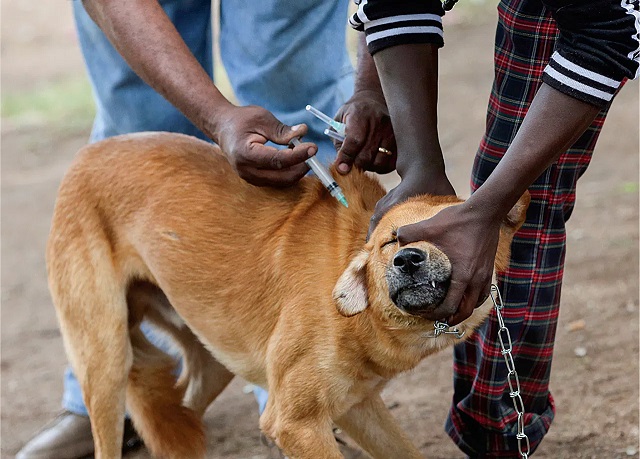
Kampala, Uganda | THE INDEPENDENT & URN | Two weeks after holding a successful scientific symposium and AGM in Masaka City, the Uganda Veterinary Association (UVA) has been assured of increased support by the Buganda Kingdom.
Activitives to book livestock farmers education, establishment of demonstration farms and promotion of ecotourism and cultural heritage will get the full support of the Katikkiro of Buganda, Charles Peter Mayiga.
The UVA met the Katikkiro (Prime Minister) on Thursday at Bulange Mengo and briefed him of about their activities, especially on the just concluded UVA symposium in Masaka that attracted experts from across the country and east Africa.
The Masaka event was the first ever Uganda Veterinary Association farmer’s day, Scientific symposium and annual General meeting held outside Kampala.

At the AGM, majority of the UVA executive were returned. It comprise President Daniel Kasibule, VP Madrine Nabada, General Secretary Boniface Obbo, DGS Geofrey Mukama, Treasurer Ben Ssenkera, treasurer Justine Wobusobozi. Committee members are Maureen Mayanja, Joseph Amanya and Acham Merab.
Also elected was the UVPPA (Uganda Veterinary Para- Professional Association.
1. Busulwa Henry – President.
2. Judrio Geoffrey – vice president.
3. Mutatiina John Patrick Barugahare – General secretary.
4. Nalugwa Jovia Slyvia – Vice Secretary General.
5. Balondemu David (Director Bam Animal Clinics) – Treasure.
6. Maani Michael (Sales Representative for Eagle Vet U Ltd, Eastern Region) – Publicity .
Veterinary Association calls for compulsory rabies vaccination campaign
The Uganda Veterinary Association-UVA is mooting for compulsory vaccination against rabies to eliminate the disease in the country.
Dr. Ismail Asiimwe, the UVA President Central Uganda Chapter, says they are concerned by the apparent community reluctance to participate in voluntary vaccination exercises, which frustrates efforts to control and eliminate rabies infections in both livestock and humans.

Records from the Uganda National Institute for Public Health-UNIPH, indicate that over 90 percent of rabies cases are transmitted through dog bites, and the disease has remained a public health concern in the country.
On average, the country registers an estimated 14,869 dog bites and 36 human rabies deaths every year. Dr. Asiimwe says several cases are going unreported in different parts of the country, something that requires more vigorous intervention to control the disease and completely eliminate it.
He says that they want the responsible ministries to make it mandatory for all domestic dogs, cats, and other pet animals to be vaccinated against rabies, such that the country literally eliminates the risk of transmitting the infection.
According to records, Uganda’s dogs vaccination coverage currently stands at only 10 percent; a figure which is way below the World Health Organization-WHO recommendation of 70 percent per annum.
Besides compulsory vaccination, Asiimwe also calls upon the Ministry of Health to consider mainstreaming rabies in health promotion campaigns, such that it also gets attention similar to other diseases.
Dr. Asiimwe argues that despite the government providing free vaccines for rabies, there is still an underlying public reluctance to embrace the vaccination programs, which now require serious enforcement using the law.
When a person gets infected with rabies, Dr. Asiimwe explains that the health workers can do little to save the patient’s life. He has urged people who are highly at risk of dog and cat bites to as well seek vaccinations against the virus, as an effective safeguard for them.
Dr. Lawrence Kirumira, the Masaka District Veterinary Officer also observes that the community has not paid attention to the vaccination of dogs and cats, because they don’t attack economic value to them.
He however says that as they wait for the proposed policy, the district veterinary department has considered conducting routine vaccination exercises at parish levels, targeting to reach out to as many dogs and cats as possible.
Notably, the United Nations under the Sustainable Development Goals-SDGs, recommends coordinated, country-centric strategies to eliminate human deaths from dog-mediated rabies by 2030.
*****
URN
 The Independent Uganda: You get the Truth we Pay the Price
The Independent Uganda: You get the Truth we Pay the Price



